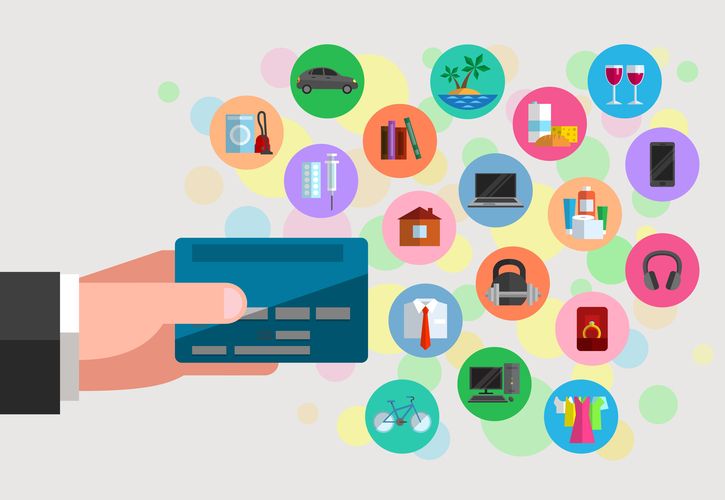UK DIY News
Barclays: 2023 Consumer Card Spending & Trends

- Rising food prices propelled supermarket growth, while “shrinkflation” and “skimpflation” emerged as new challenges for grocery shoppers
- Brits favoured pubs over restaurants for dining and drinking, with a notable boost from sports events and the King’s Coronation
- Taylor Swift’s ‘Eras’ tour and Beyoncé’s ‘Renaissance’ tour tickets, as well as blockbuster hits such as ‘Barbie’ and ‘Oppenheimer’ fuelled entertainment sector
- Unpredictable weather hampered clothing stores, while travel thrived as Brits booked post-pandemic holidays
- The Barclays report combines hundreds of millions of customer transactions with consumer research to provide an in-depth view of UK spending
Consumer card spending increased just 4.1 per cent year-on-year in 2023 – noticeably lower than the growth seen in 2022 (10.6 per cent) – as Brits cut back on new clothes, eating out and home improvements amid rising inflation and household bills. However, consumers continued to prioritise moments of joy and shared experiences, boosting travel, entertainment, and pubs & bars.
New data from Barclays reveals that spending on essential items grew 3.9 per cent in 2023 compared to 6.3 per cent last year. This reduced increase was largely due to a -10.7 per cent drop in fuel spend, stemming from the decline in pump prices this year after they peaked following Russia’s invasion of Ukraine in early 2022.
Barclays’ monthly Consumer Spend Index, which combines hundreds of millions of customer transactions with consumer research to provide an in-depth view of UK spending, reveals the top 10 trends that shaped consumer behaviour this year.
1) Savvy supermarket shopping
Rising food price inflation fuelled a 6.5 per cent increase in supermarket shopping, while food and drink specialist stores returned to growth (4.4 per cent) following a -1.1 per cent decline last year.
Discount supermarkets performed particularly well, accounting for 15.5 per cent of all grocery spending – an all-time high, up from 14.5 per cent in 2022 – as savvy shoppers looked for ways to reduce the cost of their weekly shop amid rising prices. This behaviour peaked in September, when seven in 10 (70 per cent) claimed to be looking for cutbacks – over half (53 per cent) of these consumes were paying closer attention to price rises on specific items, 49 per cent were buying budget or own brand goods over branded goods, and the same proportion (49 per cent) were opting for more budget or value ranges1.
2) “Skimpflation” and “shrinkflation” impact the nation
“Shrinkflation” and “skimpflation” emerged as the main scourges of supermarket shoppers in 2023. At its peak in September, 76 per cent of consumers had noticed examples of shrinkflation, with chocolate (48 per cent), crisps (41 per cent), packs of biscuits (38 per cent) and snack bars (31 per cent) the most cited products impacted by this trend1.
In addition, more than one in five Brits (22 per cent) in July noticed that shrinkflation was also affecting alcoholic drinks, finding that some of the drinks they were buying – such as beers, spirits and tinned cocktails – were becoming weaker or containing less alcohol, yet still costing the same or more1.
Meanwhile, over half (52 per cent) of shoppers in August noticed that some of the food and drink products they were buying had been downgraded in terms of the quality or quantity of premium ingredients, yet still cost the same or more than they used to – otherwise known as “skimpflation”. These shoppers had mostly noticed the declining quality of clothing, chosen by 44 per cent, closely followed by toilet paper (43 per cent), and toiletries/cosmetics (37 per cent)1.
3) Heating hampers eating
To offset rising household bills, Brits spent less on eating out in 2023, with restaurants seeing a -6.7 per cent decline compared to last year. This comes as almost half (47 per cent) of consumers in October said they were planning to cut down on discretionary spending so they could afford their energy bills throughout the autumn and winter, with eating out at restaurants (56 per cent) one of the most cited areas for cutbacks1.
4) Events boost bars & pubs
On the other hand, pubs, bars & clubs had a strong 12 months, up 5.9 per cent year-on-year. This growth was largely driven by major public and sporting events, including the King’s Coronation and Rugby World Cup, as well as rising beer and alcohol prices. The strong performance of pubs compared to restaurants also suggests that while out socialising Brits were opting for more affordable pub food instead of formal restaurant meals.
5) Entertainment economy thrives
Despite inflationary pressures, Brits have been keen to spend on memorable experiences. The entertainment sector (up 7.5 per cent) was boosted by the release of ticket sales for major events including the Eurovision Song Contest, Taylor Swift’s ‘Eras’ tour, and Beyoncé’s ‘Renaissance’ tour, with spending on shows and concerts up 8.6 per cent year-on-year overall. Meanwhile, blockbuster hits including ‘Barbie’, ‘Oppenheimer’ and ‘Avatar: The Way of Water’ fuelled a 6.3 per cent increase at cinemas.
6) “Streamflation” spurs subscriptions
At-home experiences – or “insperiences” – proved popular, with digital content and subscriptions as well as takeaways and fast food rising 7.3 per cent and 8.1 per cent respectively year-on-year. This growth was driven by more consumers tuning in to watch the series finales of popular shows such as ‘Succession’, ‘Ted Lasso’ and ‘The Crown’, as well as many streaming services increasing their prices in 2023.
7) Unpredictable weather casts a cloud on the high-street
Rising costs combined with inconsistent weather meant clothing stores had a challenging year, declining -0.5 per cent. This was largely due to the unseasonal weather in months including May, July and October leading Brits to hold off on making seasonal clothing purchases, as well as new clothes and accessories being one of the key non-essentials Brits said they were deprioritising.
8) Furniture takes a back seat
If 2022 was the year for Brits investing in their homes, 2023 has been the year they sat back and enjoyed their grand designs. As a result, home improvements & DIY saw a -4.7 per cent decline year-on-year, while furniture stores saw a similar drop (-5.2 per cent), indicating that Brits have been making fewer big-ticket purchases and instead prioritising their spend in more experience-led categories.
9) Travel continues to cruise
After a standout performance in 2022, the travel sector continued to thrive in 2023, seeing robust growth at both travel agents (10.4 per cent) and airlines (30.8 per cent). The sector’s success was also a lasting impact of pandemic, with a fifth (19 per cent) of consumers saying in November that they will be planning more holidays in 2024 because they’re still catching up on trips missed during lockdowns – a trend otherwise known as ‘revenge spending’1.
10) “Lipstick effect” lifts health and beauty
Pharmacy, health & beauty retailers also enjoyed an uplift this year (5.6 per cent) – possibly thanks to the “lipstick effect”, where consumers prioritise small indulgences, such as cosmetics and self-care products, over big-ticket items during periods of economic uncertainty. The category’s boost is also likely due to pre-holiday purchases as well as increased demand for make-up and skincare compared to last year, when the pandemic’s lingering effects meant fewer Brits commuted into the office, reducing the need for appearance-related investments.
Esme Harwood, Director at Barclays, said: “Brits prioritised memorable experiences and shared moments with loved ones this year, boosting pubs, travel and entertainment. Many were keen to make up for lost opportunities during the pandemic by booking holidays, treating themselves to concert tickets, and enjoying nights out with friends.
“However, certain sectors saw noticeable cutbacks. Restaurants and clothing stores were hampered by the unpredictable weather, as well as the impact of rising household bills on consumers’ personal finances. Nonetheless, Brits' confidence in their ability to spend within their means has remained resilient, as they become more resourceful and adept in finding ways to balance their budgets.”
Jack Meaning, Chief UK Economist at Barclays: “Although 2024 will be a tough year for the economy as a whole, the New Year is a time to look for the positives. We expect to see the Bank of England start easing interest rates from the middle of the year, and in fact, we’re already seeing mortgage rates come down in anticipation. This is as the speed of price rises slows, which should continue to provide at least some boost to the spending power of people who have been squeezed through the cost-of-living crisis. 2024 will be a year of transition, from headwinds to tailwinds, but come next December we should be able to toast the New Year with more festive spirit.”
Overall growth figures
Spend Growth | Transaction Growth | |
Essential | 3.9% | 4.3% |
Non Essential | 4.2% | 3.9% |
|
| |
OVERALL | 4.1% | 4.1% |
Retail | 2.8% | 4.1% |
Clothing | -0.5% | 2.9% |
Grocery | 6.2% | 4.8% |
| 6.5% | 4.3% |
| 4.4% | 7.7% |
Household | -4.4% | 1.5% |
| -4.7% | 0.2% |
| -3.3% | 5.2% |
| -5.2% | -3.8% |
General Retailers | 4.4% | 5.3% |
| 5.0% | 7.3% |
| 4.4% | 7.4% |
| 0.1% | -3.0% |
Specialist Retailers | 2.0% | 0.3% |
| 5.6% | 2.8% |
| -1.9% | -4.6% |
| 1.0% | -1.2% |
Hospitality & Leisure | 9.5% | 4.7% |
Digital Content & Subscription | 7.3% | 0.8% |
Eating & Drinking | 6.8% | 3.6% |
| -6.7% | -11.7% |
| 5.9% | 4.6% |
| 8.1% | 5.8% |
| 9.5% | 2.7% |
Entertainment | 7.5% | 8.4% |
Hotels, Resorts & Accommodation | 6.9% | 2.2% |
Travel | 15.2% | 11.4% |
| 10.4% | 11.8% |
| 30.8% | 28.7% |
| 12.1% | 11.3% |
| 11.0% | 9.2% |
Other | 0.5% | 2.4% |
Fuel | -10.7% | -3.2% |
Motoring | 2.9% | 6.7% |
Other Services | 7.0% | 8.2% |
Insperiences | 6.5% | 2.9% |
|
|
|
Online | 4.0% | 3.6% |
Face-to-Face | 4.1% | 4.3% |
Source : Barclays
Image : Elena Abrazhevich / Shutterstock.com (502432939)
I find the news and articles they publish really useful and enjoy reading their views and commentary on the industry. It's the only source of quality, reliable information on our major customers and it's used regularly by myself and my team.











































